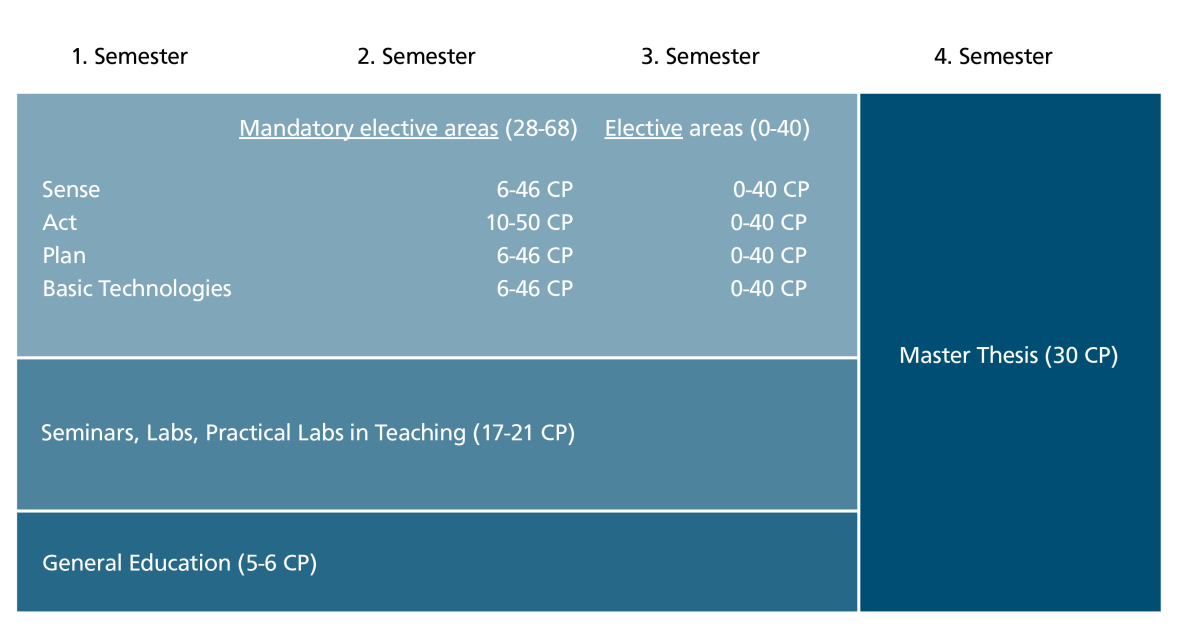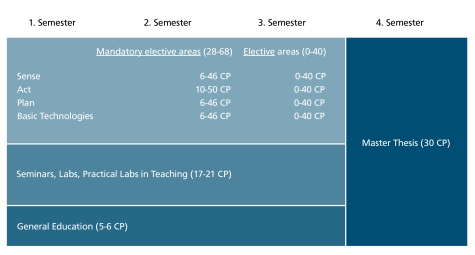Students arrange their curriculum from numerous courses in four mandatory elective and elective areas:
- Sense
- Act
- Plan
- Basis Technologies
These represent the four core areas necessary for autonomous systems and robotics.
Students have a high level of freedom in the design of their curriculum, allowing them to pursue their individual interests. Mandatory elective areas ensure that students acquire the necessary basic knowledge as well as the specific knowledge and skills essential for the course of study.
Due to the close cooperation with other relevant departments of the TU Darmstadt, the study programme offers a particularly diverse range of courses. Additional offerings come primarily from electrical and information engineering as well as mechanical engineering. Take a look at the module handbook to learn more about the courses offered.
A major strength of the program are the integrated projects and labs. Here, students have the opportunity to participate in challenging projects in cutting-edge international research.
Below you will find the exemplary course of studies. More detailed information on study and examination plans can be as found of June 2023 under “Regulations” at the bottom of the page.




